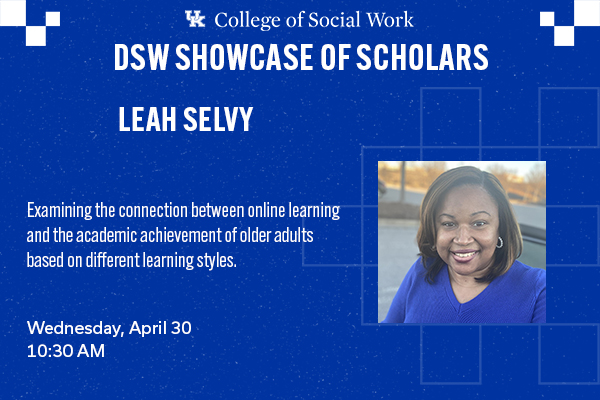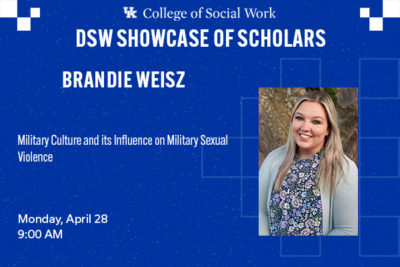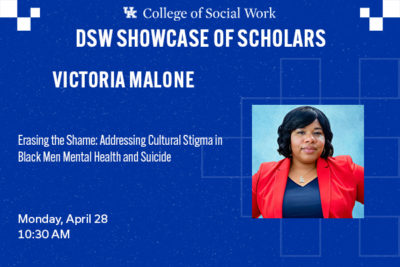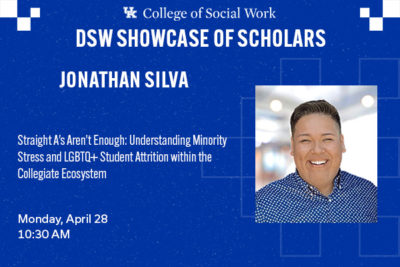DSW Candidate – Leah Selvy, 10:30 AM – 11:45 AM
$0.00
Virtual Showcase of DSW Scholars 2025 Event!
Examining the connection between online learning and the academic achievement of older adults based on different learning styles
DSW Candidate – Leah Selvy, MSW, MS
Wednesday, April 30, 2025
10:30 AM – 11:45 AM Eastern Time Zone
Credit Hours: This session is not eligible for CE credit.
Description
Examining the connection between online learning and the academic achievement of older adults based on different learning styles
There has been an increase in the number of older adult learners entering four-year universities to obtain a social work degree. Older adults, specifically 55 and older, are adapting to technology use while seeking online education. This capstone calls for the examination of how colleges and their professors can meet the needs of online adult learners while improving student engagement, student success, and student-teacher relationships.
A literature review was conducted to answer the research question, “Are bachelor’s, master’s, and doctoral degrees that offer online courses effective for the learning styles of older adults?” After meeting the inclusionary requirement, 8 articles were accessed and revealed that student engagement, connection, interaction, and relationship building with professors are important for student success and satisfaction. Professors and universities are not engaging and offering supportive services to online adult students as they are in the classroom setting.
The literature review exposed a gap in the research, mainly because of little evidence of a correlation between online education and older adults’ learning styles, particularly kinesthetic and virtual. The conceptual paper explored the Social Learning Theory and eLearning Theory to dive deeper into understanding how to meet older adult learners’ online educational needs. The concept shared aligned with the results discussed in the literature review. The application paper identified and implemented a new approach, homing in on professors’ engagement, training needs and incorporating various ways of teaching for their online adult learners, who will have a higher increase in online enrollment in social work courses within the next decade.
Learning Objectives:
Upon completion of this conference, participants will be able to:
- Identify and address the barriers to online education and older adult learners’ learning styles.
- Examine how Social Learning Theory and eLearning Theory assist in incorporating solutions for addressing online adult learners’ educational needs and their learning styles.
- Introduce a new approach to encourage building relationships, engaging in supportive services, and fostering connections for online adult learners, professors, and universities, as this increases student success and satisfaction.
Delivery Method: Live Interactive Training via Zoom Video Conferencing
Credit Hours: This session is not eligible for CE credit.
Target Audience: This conference is intended for social workers and students.
Accreditation: University of Kentucky College of Social Work, Provider # 1377, is approved as an ACE provider to offer social work continuing education by the Association of Social Work Boards (ASWB) Approved Continuing Education (ACE) program. Regulatory boards are the final authority on courses accepted for continuing education credit. ACE provider approval period: 9/29/22-9/29/25. Social workers participating in this conference will receive up to 15 general continuing education credits.
Claiming CE Credit: Instructions for claiming CE credit will be disseminated at the beginning of each session.
Questions: If you have any questions regarding CE credit or to report a grievance, please contact Christina Krantz at Christina.Krantz@uky.edu. For technical assistance, please contact lmshelp@uky.edu.
Disclaimer: The views and opinions expressed in these presentations are those of the individual presenters and do not necessarily reflect the official policies or positions of the University of Kentucky or the College of Social Work. The inclusion of any topics, perspectives, or discussions is intended for academic engagement and does not constitute endorsement by the institution.



